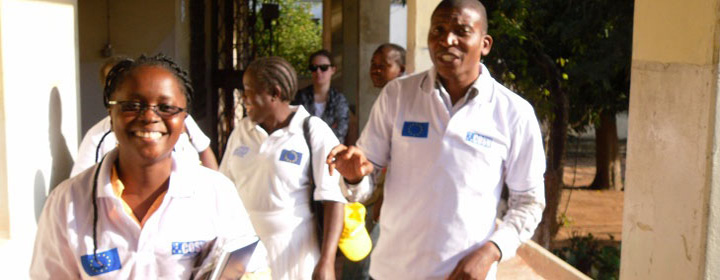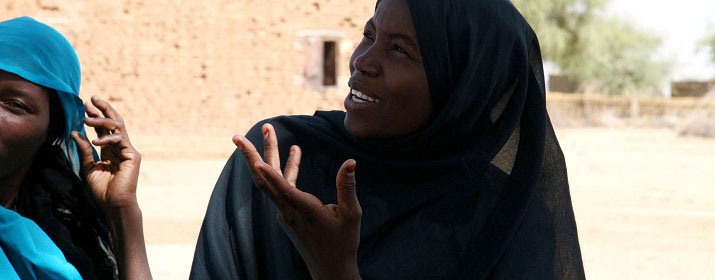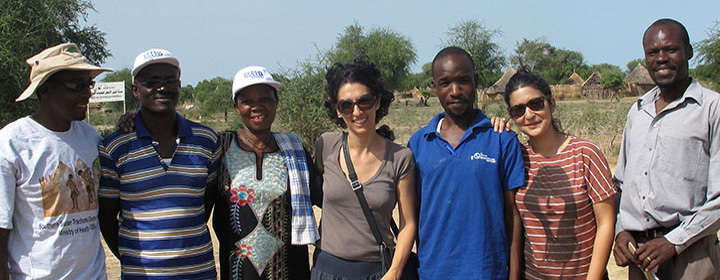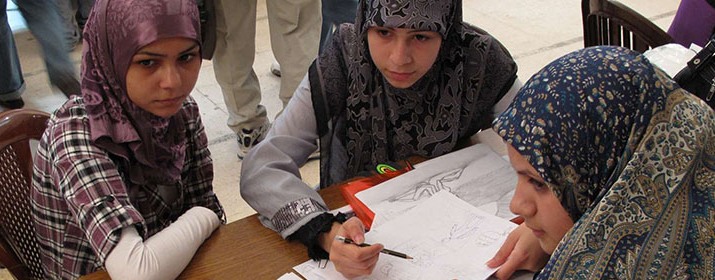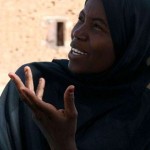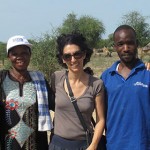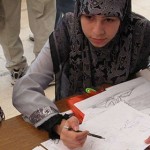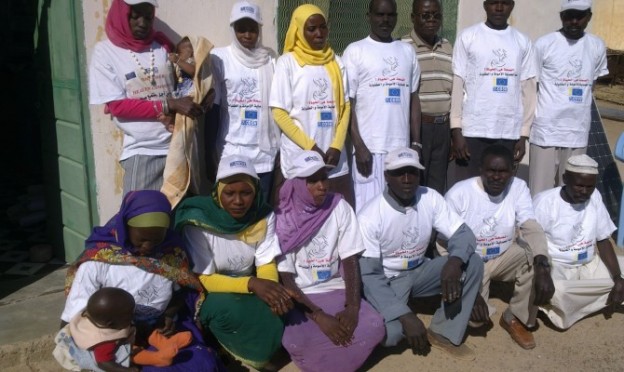We are in the village of Rahat Rama, in Sudan, a small community an half hour drive from COSV office. Today we distribute food supplements for malnutrition treatment: a mix made of enriched flour, sugar and oil. Especially in the dry season, malnutrition is a major problem in the whole of Sudan. During the day, about eighty mothers with their children will come to our health center, some of them will walk more than an hour to get here. We have built a porch and stretched natural fiber carpets where women sit. Their clothes are colorful, the sky is blue and the Sudanese desert is of an intense ocher: it seems to be in a picture. Prior to the distribution of food supplements we have a demonstration on how to cook the mixture. Malnutrition, however, should not only be treated, but also prevented.
Mariam and Mohamed , COSV community educators, know it well: they have been working with us since three years. They come from the community itself and speak both Arabic and local dialects. Before starting the distribution, they organize health awareness and education sessions: they explain to mothers how important it is to wash hands before cooking, boil the water before drinking it and how to cook and store food to avoid the risk of gastrointestinal diseases, especially diarrhea. Women are concentrated and feel that what is being explained to them could save the lives of their children.
Awareness campaign in West Darfur. Who is involved and what happens?
In the current project in Darfur, northern Sudan, awareness campaigns focus on maternal and child health and help to significantly improve the health status of the population. There are 22 educators who, together with volunteers, in 2012 met 6,240 families. With the visits done in the previous year, 79% of the population of Kulbus met the team who explained the importance of breastfeeding for the proper growth of children, showed how to protect themselves from malaria, informed about the risks of malnutrition, hoe to identify it as the first symptoms occurs and where to get treatments. A major focus has been on hygiene practices and how to prevent and deal with cases of diarrhea in young children. Vaccinations have been discussed, particularly for measles and whooping cough: educators have explained the usefulness for children under one year of age and how to access the free service.
Why an awareness campaign?
To learn about the diseases, understanding the behaviors that can avoid or prevent infection, knowing who to contact and how to handle an outbreak allows people to immediately cope with most emergencies and therefore contain outbreaks. The information sessions in the villages, home visits by health educators, the presence of informed people that can be a stable and reassuring reference point, flyers and posters are some of the tools useful to know, and then deal with diseases.
Our results in the fight against malnutrition
The work we are carrying out to prevent malnutrition is giving back encouraging results. Not only West Darfur is one of the states of Sudan with the lower rates of malnutrition, but thanks to the work of our community educators we are registering positive behavior changes that help to prevent its causes. According to a recent survey by an international expert on health and nutrition knowledge, attitude and behaviors, all the people surveyed have at least basic knowledge on how to avoid diarrhea of children. Over 70% of the respondents know that to prevent this disease – which in Africa can also lead to the death of a child – food must be cooked and covered to prevent them from being contaminated by flies and bugs; hands must be washed before cooking and fruits and vegetables must be washed thoroughly before eating. These are encouraging figures, obtained thanks to the constant and dedicated work of people like Mariam and Mohamed .
Along with the activities in support to Kulbus health center and the 12 primary health units distributed in the villages of the area, the awareness campaign will limit the impact of diseases on the population and reduce the mortality rate linked to the outbreak of epidemics.

